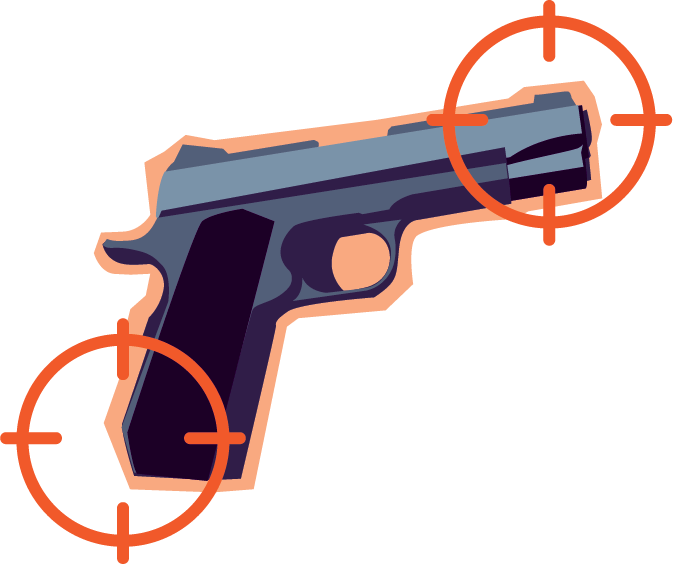The Utah State Board of Education has sent grant applications for artificial intelligence gun detection to K-12 schools throughout the state.
Rhett Larsen, Utah State Board of Education school safety specialist, said the grant funding will last until June 2025. School districts interested in continuing the program will work with local policymakers to secure financing.
“This is just an opportunity,” Larsen said. “This is not a requirement in our state. It’s for those [schools] who want to give it a try and see if this is something that works for them … and see if it’s something they wish to continue.”
In December, the Utah State Board of Education approved a $3 million contract with AEGIX Global, a Utah tech company specializing in emergency response safety, to distribute an AI gun detection software developed by ZeroEyes.
Larsen said ZeroEyes’ AI technology will lay over a school’s existing video surveillance cameras. Once the AI picks up on a potential firearm, the picture is sent to a centralized location, where the results are verified. Once confirmed, ZeroEyes partners with AEGIX to inform local police departments of the situation.
“We applaud Utah’s increased focus on school safety and security measures, and are proud to present ZeroEyes as part of a Comprehensive Incident Response Framework to help protect students and faculty across the state,” Chet Linton, CEO of AEGIX, said in a statement.
According to ZeroEyes, the positive identification of weapons is sent to local law enforcement and school administrators within three to five seconds. Larsen added that ZeroEyes’ centralized location is staffed around the clock with military veterans and people who work in law enforcement.
Larsen said there will be two web seminars with AEGIX for schools interested in learning more about the technology and answering any questions.
The grants cover up to four cameras per school, Larsen added, and applications for the grant are open to all schools in Utah. Some requirements for schools to install the software include a stable internet connection and having cameras already in place.
Kieran Carroll, ZeroEyes’ chief strategy officer, said the company’s AI gun detection technology will likely be installed in schools by the summer of 2024. Carroll added the $3 million allocated by the state legislature would cover only a portion of the starting funds.
“The $3M is designed to cover a small amount of initial licenses per school. If the implementation is successful, the legislature will consider additional expansion funds,” Carroll said in an email interview.
According to the Salt Lake Tribune, school camera footage is considered educational records, so ZeroEyes must comply with the Family Educational Rights and Privacy Act, which prevents schools receiving government funds from releasing student information without the student’s or their parent’s consent in most circumstances.
Civil rights groups have raised privacy concerns with firearm detection software. The American Civil Liberties Union’s senior policy analyst, Jay Stanley, wrote about the potential range of applications for AI gun detection data.
“Because gun detection analytics acts as an add-on to existing cameras, it’s not as if the cameras involved will only be used to look for guns. They can simultaneously be used for the full range of surveillance uses, including face recognition, forensic search, and even marketing and ‘business intelligence,’” Stanley wrote in an opinion column.
According to the company’s website, ZeroEyes says it complies with FERPA and never stores or monetizes personally identifiable information.
The Utah State Board of Education’s contract with AEGIX Global requires data to only be publicly released in aggregate and redacted form, so individual students cannot be identified. The contract further stipulates that data cannot be released for secondary purposes like advertising.
“This technology is not facial recognition. It’s not a live recording. It literally takes snapshots every so often within the timing of the cameras,” Larsen said.
The $3 million contract is part of a larger school safety bill which allocated $75 million to schools in total. Larsen said the $72 million basic school safety has been allotted through a grant process, and schools have until the end of 2026 to use the funds.
“It’s been awesome to be able to … be part of that process and see this funding go to … increasing those basic safety and security needs throughout the state,” he said. “Especially in areas where they might not have the mechanism to get the funding for those types of items, and so it’s exciting that opportunity has been granted [to] them.”















Robert Lee Nievar • Mar 21, 2024 at 6:29 pm
Cant you just have metal detectors or a sensor to detect the gun powder in a package? You dont need a complicated algorithm to have a sensor sniff this stuff out.